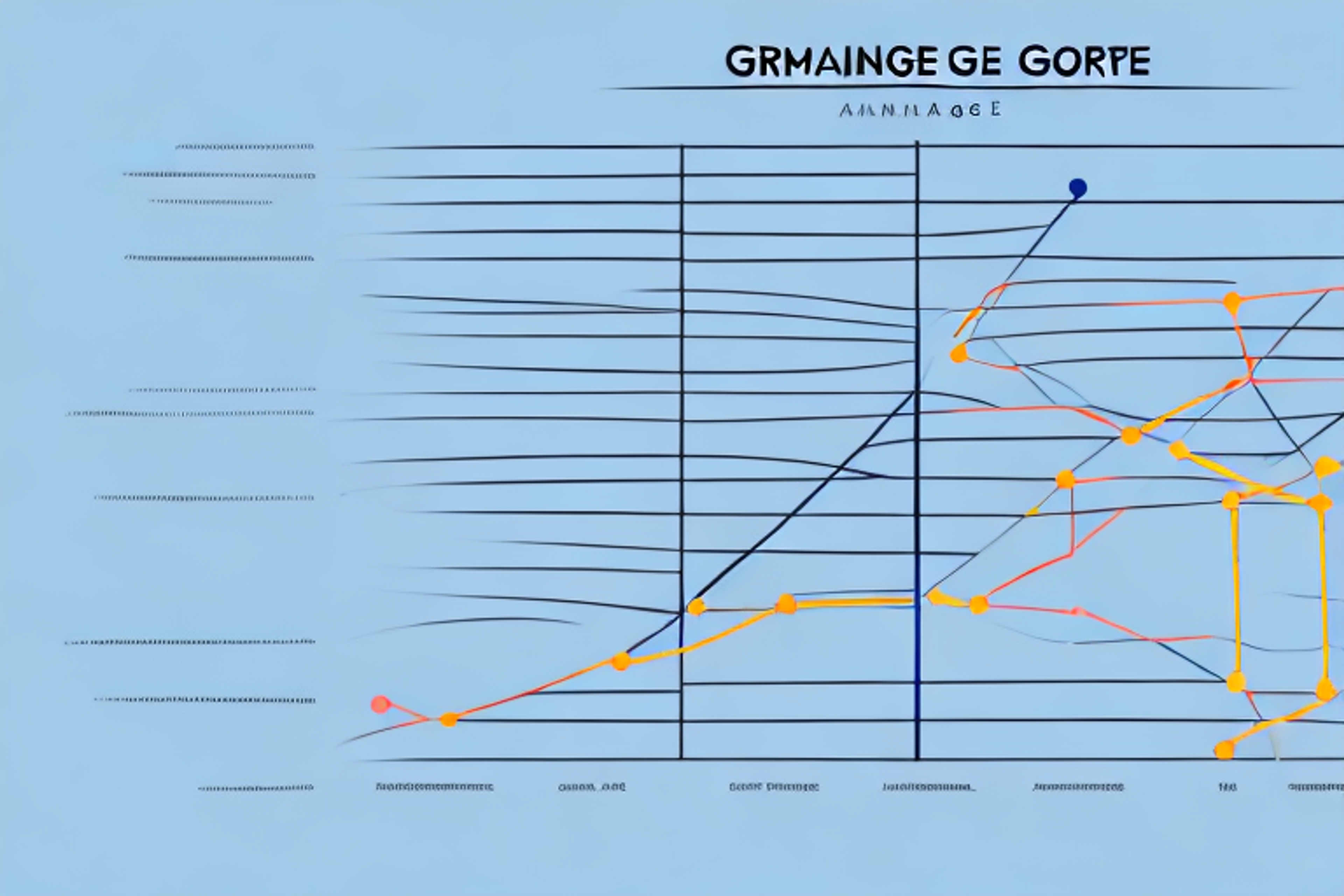
Table of Contents
Free Event

Featuring Jennifer P.
How to Bounce Back from a Low GMAT score
Starting Tuesday, April 29
4:00 PM UTC · 60 minutes

Featuring Jennifer P.
The Graduate Management Admission Test (GMAT) is one of the most commonly taken standardized tests for aspiring business school students. The exam is designed to evaluate test takers' abilities in various areas, including analytical writing, quantitative reasoning, and verbal reasoning. GMAT scores have become a key factor in the admissions process for many business school programs, and as such, it is essential to have an understanding of the GMAT score range, test results, and rankings. In this article, we will explore the GMAT exam and its importance, the average GMAT score, how to interpret your GMAT score report, top business schools and their GMAT score requirements, the GMAT scoring system, how to improve your GMAT score, common mistakes to avoid when taking the GMAT exam, the impact of your GMAT score on MBA admissions, what is a good GMAT score, the history and evolution of the GMAT exam, how to register for the GMAT exam, the role of the Integrated Reasoning section in the GMAT exam and finally, how to ace the quantitative and verbal sections of the GMAT exam.
Understanding the GMAT Exam and Its Importance
The GMAT exam is a standardized test that is administered worldwide to evaluate candidates' readiness for graduate-level business education. The test includes four sections, namely, the Analytical Writing Assessment, the Integrated Reasoning Section, the Quantitative Reasoning Section, and the Verbal Reasoning Section. The GMAT exam is important because it is one of the essential factors that business schools consider when evaluating applicants' suitability for their programs. Business schools use GMAT scores to gauge applicants' academic potential, analytical skills, and ability to handle the rigorous coursework that is common in business programs.
One of the benefits of taking the GMAT exam is that it provides a level playing field for all applicants. Since the exam is standardized, it ensures that all applicants are evaluated based on the same criteria, regardless of their educational background or work experience. This means that applicants who may not have a traditional business background can still demonstrate their potential to succeed in a business program through their GMAT scores.
Additionally, the GMAT exam is not just important for admission to business schools, but also for securing scholarships and other forms of financial aid. Many business schools offer scholarships and other financial aid packages to applicants who score well on the GMAT exam. Therefore, a high GMAT score can not only increase your chances of getting accepted into a top business school but also help you secure funding for your education.
What is the Average GMAT Score?
The average GMAT score is around 560 out of a possible 800. However, this score is dependent on several factors, including the test taker's demographic, such as age, gender, and nationality, as well as their academic background and work experience. For example, applicants with an undergraduate degree in business or a related field may have a higher GMAT score than those who come from other academic backgrounds.
It is important to note that the average GMAT score can also vary depending on the type of program the test taker is applying to. For instance, top MBA programs may have a higher average GMAT score requirement than other graduate business programs. Additionally, some programs may place more emphasis on other factors, such as work experience or essays, when considering applicants.
How to Interpret Your GMAT Score Report
When you receive your GMAT score report, you will have access to several pieces of information that are designed to help you understand your performance on the exam. Your score report will include your overall score, along with your scores in the individual sections. You will also receive a percentile ranking that compares your performance to that of other test takers. Additionally, your score report will include a breakdown of the types of questions that you answered correctly and incorrectly.
One important piece of information that you should pay attention to on your GMAT score report is the Integrated Reasoning (IR) score. This section of the exam measures your ability to analyze and synthesize data from multiple sources, and it is becoming increasingly important to business schools. A high IR score can help demonstrate your ability to handle complex data analysis tasks, which is a valuable skill in many industries.
Another useful feature of the GMAT score report is the ability to send your scores to up to five schools for free. This can save you money on application fees and streamline the application process. However, it is important to note that you should only send your scores to schools that you are seriously considering attending, as sending scores to too many schools can be seen as a lack of focus and commitment.
Top Business Schools and Their GMAT Score Requirements
The GMAT score requirements for top business schools vary depending on the institution. However, many business schools look for applicants with scores that fall within the range of 600-700. Some of the top business schools in the world, such as Harvard Business School and Stanford Graduate School of Business, have higher GMAT score requirements, sometimes in excess of 700.
GMAT Scoring System: What You Need to Know
The GMAT scoring system is a computer algorithm that is designed to evaluate the difficulty of the test questions based on the test taker's performance. The algorithm adapts to the test taker's ability level by giving them harder or easier questions depending on whether they answer correctly or not. This computer adaptive system is designed to provide a more accurate assessment of test taker's abilities than a traditional test with fixed questions.
How to Improve Your GMAT Score: Tips and Strategies
Improving your GMAT score requires diligent preparation and practice. The first step in improving your score is to identify your areas of strength and weakness. Once you have identified these areas, you can focus your attention on your weaknesses by working on practice questions and materials tailored to these areas. It is also essential to maintain a consistent study schedule and to take timed practice tests regularly.
Common Mistakes to Avoid When Taking the GMAT Exam
It is important to avoid certain common mistakes when taking the GMAT exam so that you can perform to the best of your ability. Some of these mistakes include not reading directions carefully, spending too much time on difficult questions, not managing your time effectively, and not reviewing your work before submitting the exam.
The Impact of Your GMAT Score on MBA Admissions
GMAT scores have a significant impact on MBA admissions, as they are one of the primary factors that business schools consider when evaluating candidates. A high GMAT score can make up for weaker areas of an applicant's application, such as a lower undergraduate GPA or limited work experience.
What is a Good GMAT Score? A Comprehensive Guide
A good GMAT score depends on the school that you are applying to and the competitiveness of the applicant pool. Typically, a score above 600 is considered good, and a score above 700 is considered excellent. However, it is essential to research the GMAT score ranges for your target schools to determine what is considered a good score.
The History and Evolution of the GMAT Exam
The GMAT exam is an internationally recognized standardized test that has been used for almost 70 years. Originally, the exam was designed as a way for business schools to evaluate candidates' mathematical abilities. Over time, the test has evolved to include additional sections that test verbal and analytical writing skills.
How to Register for the GMAT Exam: Step-by-Step Guide
The process of registering for the GMAT exam is relatively straightforward. It involves creating an account on the official GMAT website, selecting a test date and location, and paying the exam fee. Test takers should familiarize themselves with the exam's rules and regulations and make sure to arrive on time for the exam.
The Role of the Integrated Reasoning Section in the GMAT Exam
The Integrated Reasoning section of the GMAT exam is designed to evaluate test takers' ability to analyze and synthesize information from many sources. The section consists of 12 questions that test takers must answer within 30 minutes. The section is essential because it evaluates skills that are essential in today's workforce, such as data analysis and interpretation.
How to Ace the Quantitative Section of the GMAT Exam
The Quantitative section of the GMAT exam is designed to evaluate test takers' numerical and analytical reasoning skills. To ace this section, test takers should practice solving complex math problems and use a variety of tactics, such as back-solving, to increase their speed and accuracy. It is also essential to understand the various types of questions that are included in this section, such as data sufficiency and problem-solving questions.
Preparing for the Verbal Section of the GMAT Exam: Tips and Tricks
The Verbal section of the GMAT exam measures test takers' ability to read and understand written material, evaluate arguments, and write effectively. To prepare for this section, test takers should practice reading a variety of written materials and familiarize themselves with the various types of questions, such as sentence correction and critical reasoning questions. It is also crucial to practice time management and to accurately evaluate the given choices for each question.
Conclusion
The GMAT score range, test results, and rankings are critical aspects of preparing for the GMAT exam and applying to business school programs. By understanding the GMAT exam and its structure, analyzing your results, and following best practices regarding preparation, you can improve your chances of achieving a high GMAT score and attaining your goals regarding graduate-level business education. Remember to create a study plan, familiarize yourself with the various GMAT components, take timed practice tests regularly, and avoid common test-taking mistakes. By following these steps, you can master the GMAT exam and launch your business career to new heights!











